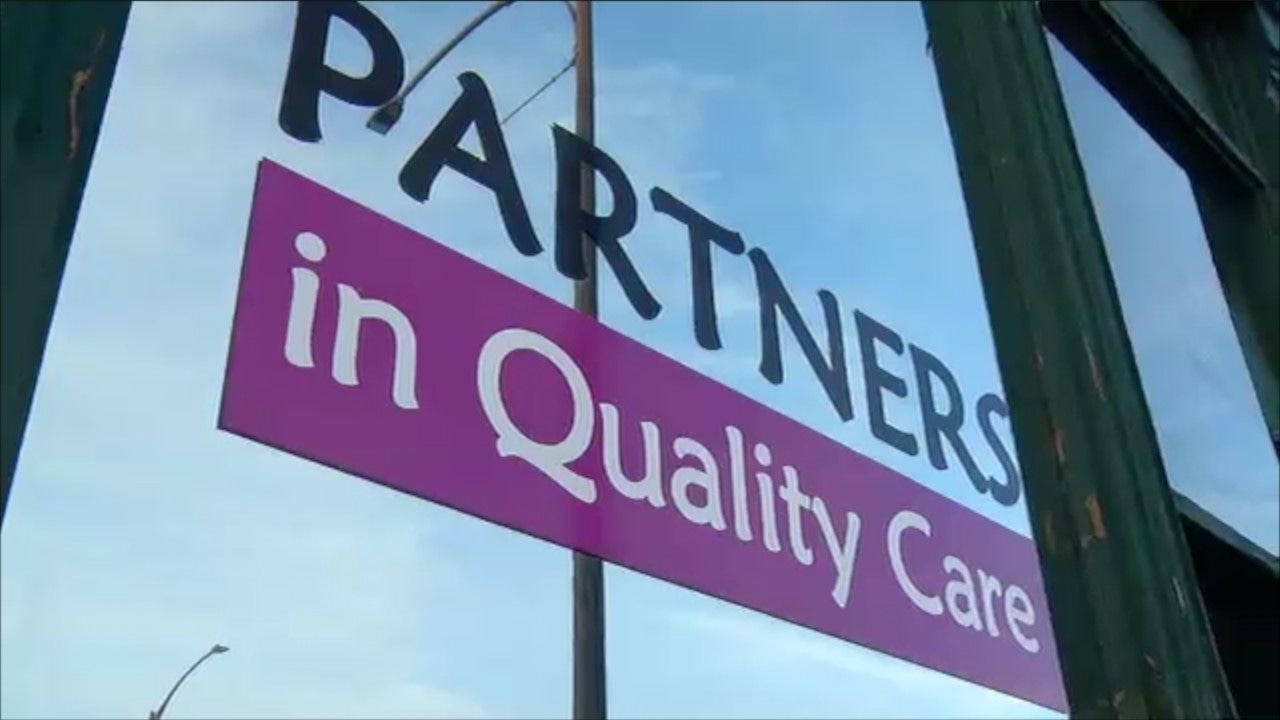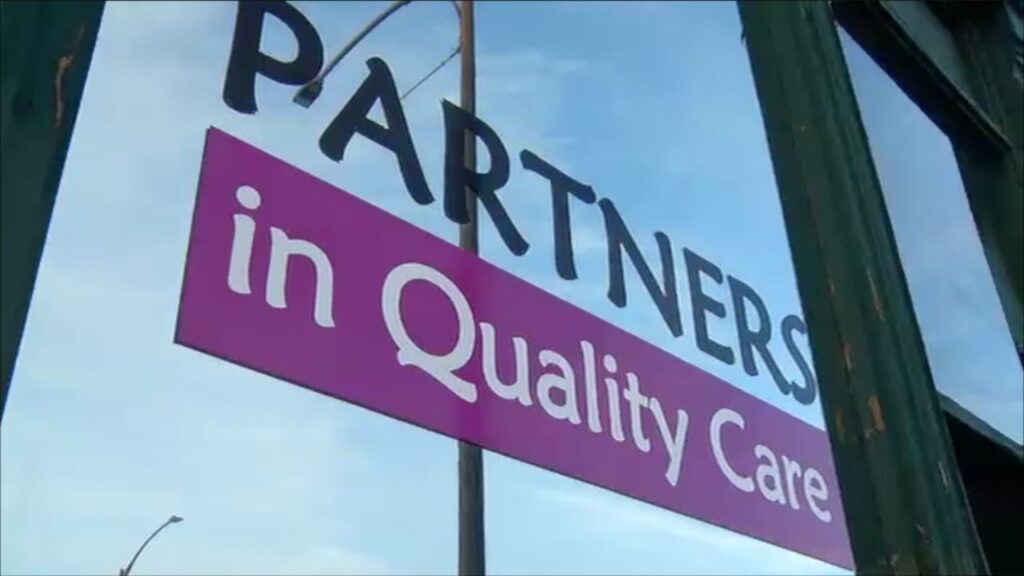St. Paul food shelf closes after Minnesota Dept. of Education froze sponsor’s funding
[anvplayer video=”5095913″ station=”998122″]
A food shelf on St. Paul’s East Side has shuttered its doors after a sponsor organization had funding frozen, 5 EYEWITNESS NEWS has learned.
In February, the Minnesota Department of Education suspended funding to a St. Paul non-profit group called Partners in Quality Care after PIQC’s name surfaced in FBI search warrants for another non-profit organization called Feeding Our Future.
PIQC sponsors several food shelves including House of Refuge Outreach on the city’s east side.
5 EYEWITNESS NEWS has now learned House of Refuge has closed its doors and can no longer feed hundreds of families, and thousands of children, because it cannot pay its vendor after MDE suspended money earmarked for PICQ.
MDE issued this statement to 5 EYEWITNESS NEWS regarding the PIQC suspension of funds in February:
“The FBI affidavits made public on January 20, 2022 included evidence naming sites under Partners in Nutrition dba Partners in Quality Care. This led MDE to suspend payments to Partners in Quality Care. Partners in Quality Care was notified of this on January 20, 2022.

Partners in Quality Care's headquarters are shown in St. Paul. (KSTP)
“In March of 2021, MDE declared Partners in Quality Care seriously deficient due to their failure to conform to performance standards and had been further evaluating Partners in Quality Care. After reviewing the documentation in the affidavits, MDE took action on the existing serious deficiencies and on January 31, 2022 proposed termination and disqualification of Partners in Quality Care.
PIQC also declined an interview request, but did issue the following statement from Executive Director Kara Lomen:
“Partners in Quality Care sponsors the service of nutritious and vitally important meals daily to at-risk and underprivileged populations in the Twin Cities and throughout Minnesota. Partners in Quality Care was not the subject of any of the searches conducted by law enforcement recently, and the agency has not been advised that it is under investigation. We are confident our agency is compliant with all laws and regulations and is a trustworthy steward of the public funds entrusted to it.
“For a small part of our agency’s service, sites whose meals are sponsored by Partners in Quality Care have used vendors who were named in the law enforcement documents unsealed in recent days. To assure that meals are indeed distributed and meet program requirements, we took immediate steps to suspend the involvement of Partners in Quality Care with those vendors listed in the law enforcement documents. We have advised sites sponsored by Partner in Quality Care to do the same. Partners in Quality Care will only do business with associates whose compliance and ethics are beyond reproach.
“Just today Partners in Quality Care has been in contact with MDE regarding the additional documentation we will provide to validate our claims for reimbursement so we can continue serving at risk populations. To the extent MDE pursues any suspension or other interruption of Partners in Quality Care’s work, we will appeal that action because of our organization’s confidence that it is complying with applicable laws.”
5 EYEWITNESS NEWS obtained reimbursement records for PIQC for the federal food program administered by MDE. Those records showed PIQC was reimbursed for 2.9-million meals in 2020. In 2021, the number of reimbursed meals jumped to 63-million.
MDE records also showed PIQC received $8.6-million for those meals in 2020 and reimbursement dollars increased to $121-million in 2021.

PIQC declined KSTP’s interview requests, but issued the following statement explaining why the food program numbers changed significantly from 2020 to 2021:
“There are 5 primary reasons that Partners in Quality Care’s numbers for reimbursement and meal counts rose significantly from 2020 through 2021. Many of them had to do with meeting a much greater need during the pandemic.
1. Beginning in March 2020, USDA began issuing waivers and flexibilities that fundamentally changed the way the CACFP and SFSP programs operated. This had the effect of greatly increasing the eligibility and scope of those programs to meet the much greater need caused by the pandemic and children not being in school. Here are some of those changes, along with links to the USDA websites explaining the changes:
a. Meals were able to be consumed at any time (i.e. in children’s homes instead of on-location at a child care center or afterschool program) https://www.fns.usda.gov/cn/covid-19-child-nutrition-response-1
b. Meals could be eaten off-site (i.e. in a child’s home instead of at an afterschool program or child care center). https://www.fns.usda.gov/cn/covid-19-child-nutrition-response-2
c. Afterschool programs were not required to offer programming or able to offer virtual programming. https://www.fns.usda.gov/cn/covid-19-child-nutrition-response-3
d. Meal patterns did not need to followed. https://www.fns.usda.gov/cn/covid-19-child-nutrition-response-4
e. Parents could pick up meals or have them delivered; parents did not need to bring their children with them when getting meals. https://www.fns.usda.gov/cn/covid-19-child-nutrition-response-5
f. Sponsors could do monitoring visit virtually instead of needing to visit a physical location. https://www.fns.usda.gov/cn/covid-19-child-nutrition-response-7
g. SFSP was allowed to run during the school year simultaneously with the Child and Adult Care Food Program (CACFP) instead of only running in the summer as it was originally designed. https://www.fns.usda.gov/cn/covid-19-child-nutrition-response-21
2. The combination of waivers means meals could be distributed in 7 day-meal packs. https://www.fns.usda.gov/tn/providing-multiple-cacfp-meals-during-coronavirus. This means that whereas before if a child attended an SFSP site or CACFP site once, it would be a single meal or snack that would be claimed. Instead, if a child attended an SFSP site or CACFP site once, they could receive 7 meals and 7 snacks. Distribution using multi-day meal packs increased meal count totals 7-fold.
3. Partners in Quality Care’s reimbursement amounts in 2020 were lower than expected because many programs ceased operations in March, April and May of 2020 when the pandemic first hit. This means that the baseline 2020 numbers that were used as a benchmark would make the increase from 2020 to 2021 seem larger than it is.
4. Funding for the Child and Adult Care Food Program (CACFP) and Summer Food Service Program (SFSP) is on a reimbursement basis; and the time delay on payment can be up to 60 days. For example, funds for meals served in December can be paid as late as March. This means that some of the funding for meals served in 2020 was included in the 2021 line item.
5. The Minnesota Department of Education (MDE) was delayed in approving applications because of the greater number of programs that wanted to serve their communities. Once Partners in Nutrition dba Partners in Quality care submits an application on behalf of a site, MDE was taking up to two months to approve the application. This means that funds were delayed. Again, this pushed funds from 2020 into 2021.”